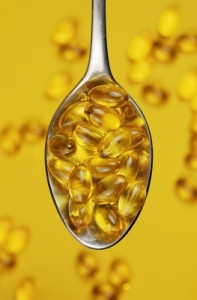GoTri’s sports dietition Gillian gives us some advice on what to think about before choosing sports supplements.
Sports supplements-should you use them?
Feeling tired, a little run down or for something to give your sports performance an edge? Perhaps you are giving some consideration to taking a sports supplement. A quick internet search will result in a multitude of sites offering products. Claimed beneficial effects include ‘increased muscle mass’, ‘improved strength, energy and focus’ or ‘ immune system boost’. But can they be trusted and do you need them?
What is a sports supplement?
The term sports supplement is a very broad one. It pertains to sports drinks, bars, gels, protein and carbohydrate powders, vitamin and mineral supplements, as well as other products that claim to improve physical performance such as caffeine, creatine and bicarbonate. Before you decide to start any supplement there are a number of questions you should seek answers to.
- Is there sound evidence that this supplement works? If yes, does it work in a sport- setting similar to yours. There isn’t much benefit to be gained from taking a supplement that enhances sprinting or powerlifting ability if you training for an ironman.
- Is it safe? Could taking this product regularly adversely affect your health? Is there a doping risk?
- Is taking a supplement the best way to improve your performance? If your diet and/or training schedule is of poor quality then this is what should be the focus of your attention. There are no quick fixes for improving sports performance.
Finding reliable information on supplements
Anecdotal evidence and testimonials, as found on many websites do not constitute good evidence. Fortunately, there are a number of trustworthy sources where you can find reliable information on the effectiveness of sports supplements. Check multiple reliable websites to get a more complete overview.
The Irish Institute of Sport website has factsheets on a range of supplements available to download. Evidence for and against use is outlined in each article. Another useful website is that of the Australian Institue of Sport (AIS). This body has classified sports supplements into 4 groups; Group A- supported for use in specific situations, group B- deserving of further research, group C- no meaningful proof of beneficial effects and Group D- banned or high risk of contamination. Factsheets are available from the website. If you are considering a supplement that is classed as group A, bear in mind that in many cases the AIS nutrition team closely supervise the use of these supplements. Refer to other sources of information to check the safety of using it unsupervised. The sports dietitians Australia website has information on a limited number of supplements.
Supplements and doping
Triathlon Ireland (TI) fully subscribes to the World Anti Doping Agency (WADA) procedures. This means that, in theory, any triathlete competing at any level could be tested. TI warn that ‘ each athlete regardless of the level at which they are competing needs to be aware of these guidelines’. Unfortunately the sports supplement industry is poorly regulated. This means that some sports supplements may contain ingredients which are not listed. This may be result of poor manufacturing practice or in a small number of cases from deliberate addition to the product (Maughan, 2005). If you are going to take a supplement, I would suggest contacting the manufacturer for assurances that their products do not contain banned substances. This will reduce, though not eliminate the level of risk. See also the irish sports council website for further information.
In conclusion
I would recommend focusing on training and an appropriate dietary regime to improve your performance. There is evidence that some supplements may improve performance in specific settings when taken in an appropriate manner. I strongly recommend that you make efforts to inform yourself of the potential benefits and risks of using any nutritional supplement you are considering.
References:
BURKE, L. 2009. Clinical Sports Nutrition, McGraw-Hill
WOOD-MARTIN R.2012. ‘Nutrition Supplements- are they worth considering?’ SN Forum. Issue 7, September 2012 p3
MAUGHAN, RJ. 2005 ‘Contamination of dietary supplements and positive drug tests in sport’ Journal Sports Sciences 883-889
Websites:
Sports Dietitians Australia
http://www.sportsdietitians.com.au/content/2582/HMBSupplementation/
Irish Sports council
http://www.irishsportscouncil.ie/Anti-Doping/Medicines_TUEs/Supplements_Nutrition/
Australian institute of sport
http://www.ausport.gov.au/ais/nutrition
Irish institute of sport
http://www.instituteofsport.ie/Institute_Of_Sport/Athlete_Zone/Sports_Nutrition_Supplements/
WADA Anti-doping code


I am using a herbal cream for my muscles and wondering if any of the ingredients are banned or of concern, especially for athletes
It contains comfrey cream, arnica cream, arnica oil, st johns wort oil, and essential oils of camphor, wintergreen, eucalyptus, lavender, peppermint
any advice welcome. thanking you sincerely and look forward to hearing from you
Mags
please check out http://list.wada-ama.org